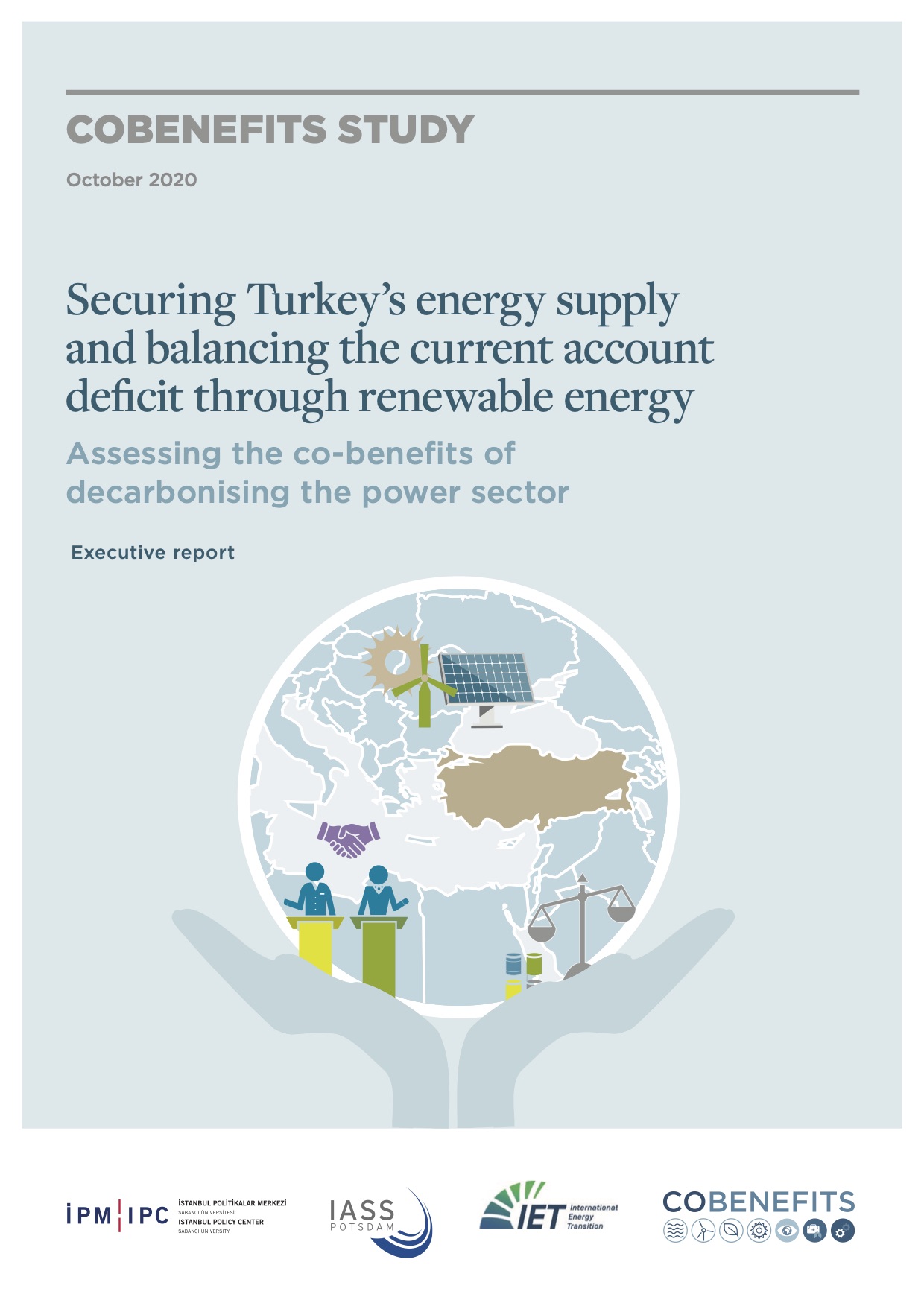 Turkey’s socio-economic growth has been accompanied by increasing energy demand, thereby expanding the opportunities to enable multiple co-benefits involving both securing the country’s future energy supply and utilising local and clean energy sources. The energy transition is inducing new investments in the electricity production and infrastructure sectors worldwide. By predominantly relying on fossil fuel resources to meet its increasing energy demand, Turkey faces significant risk of exacerbating the current account deficit in the energy sector’s trade balance and also increasing its dependency on energy imports in the future. Electricity generation technologies that utilise local and renewable energy sources can contribute to reducing energy import dependency.
Turkey’s socio-economic growth has been accompanied by increasing energy demand, thereby expanding the opportunities to enable multiple co-benefits involving both securing the country’s future energy supply and utilising local and clean energy sources. The energy transition is inducing new investments in the electricity production and infrastructure sectors worldwide. By predominantly relying on fossil fuel resources to meet its increasing energy demand, Turkey faces significant risk of exacerbating the current account deficit in the energy sector’s trade balance and also increasing its dependency on energy imports in the future. Electricity generation technologies that utilise local and renewable energy sources can contribute to reducing energy import dependency.
Download:
Key policy opportunities:
Policy opportunity 1: Turkey can foster its energy independence and ensure security of supply by increasing the use of its renewable energy sources. Increasing the share of renewable energy in power generation will contribute to increasing independence from fossil fuel imports and to reducing the current account deficit in the energy sector’s trade balance.
Policy opportunity 2: By the year 2028 Turkey can reduce its natural gas consumption by 16% and 155 million MMBTU (million British Thermal Units) through scaling up renewable power generation without the need to increase foreseen investment in the transmission system.
Policy opportunity 3: Annual economic savings on fossil fuels and fossil fuel imports can amount to USD 2.1 billion by the year 2028 by increasing the share of renewable energy in power generation and making the transmission system renewables-ready.
Year of publication: 2020
Editors: Héctor Rodríguez, Sebastian Helgenberger, Pınar Ertör, Laura Nagel – IASS Potsdam and Sabanci University Istanbul Policy Center IPC
Technical implementation: Saeed Teimourzadeh, Gokturk Poyrazoglu, Osman Bülent Tör. EPRA – Engineering, Procurement, Research, and Analysis
Suggested citation: IASS/IPC. 2020. Securing Turkey’s energy supply and balancing the current account deficit through renewable energy. Assessing the co-benefits of decarbonising the power sector. COBENEFITS Report. Potsdam/Istanbul. www.cobenefits.info
This study is part of a series of four studies assessing the co-benefits of decarbonising the power sector in Turkey, edited by IASS, IPC, EPRA and IET.
